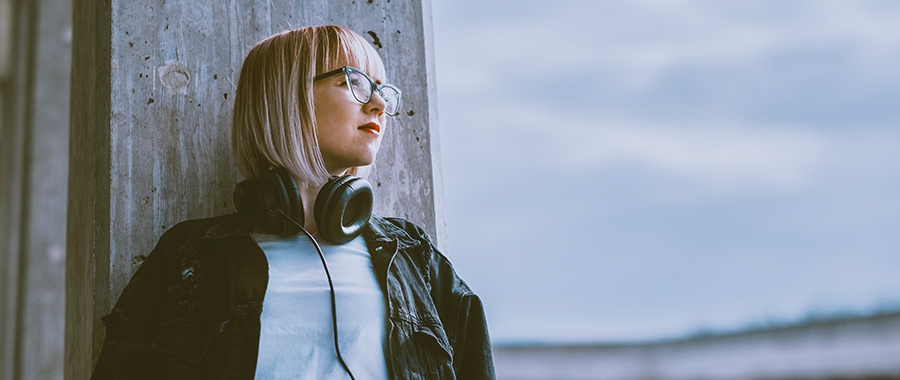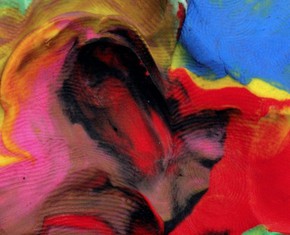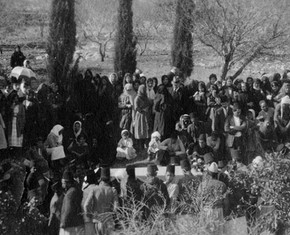The views expressed in our content reflect individual perspectives and do not represent the authoritative views of the Baha'i Faith.
The Baha’i teachings say that humanity has reached the point in its development where we no longer need to depend on another person to read and interpret the word of God for us.
Our spiritual capabilities mean that we can independently find our own religious truth, create own path through the holy writings, and come to understand what they mean in our daily life through prayer, meditation and action:
This is a new cycle of human power. All the horizons of the world are luminous, and the world will become indeed as a garden and a paradise. It is the hour of unity of the sons of men and of the drawing together of all races and all classes. You are loosed from ancient superstitions which have kept men ignorant, destroying the foundation of true humanity.
The gift of God to this enlightened age is the knowledge of the oneness of mankind and of the fundamental oneness of religion. – Abdu’l-Baha, Abdu’l-Baha in London, p. 19.
Discover for yourselves the reality of things, and strive to assimilate the methods by which noble-mindedness and glory are attained among the nations and people of the world.
No man should follow blindly his ancestors and forefathers. Nay, each must see with his own eyes, hear with his own ears and investigate independently in order that he may find the truth. The religion of forefathers and ancestors is based upon blind imitation. Man should investigate reality. – Abdu’l-Baha, Divine Philosophy, p. 24.
Because of this focus on the principle of the independent investigation of truth, the Baha’i Faith has no clergy. There is no individual Baha’i charged with authority, and no one person is considered more capable than others to interpret what the writings of Baha’u’llah mean for an individual or a community.
While Baha’is democratically elect their administrative bodies, those bodies do not have the authority to oversee anyone’s personal spiritual development, listen to confessions, prescribe some spiritual cure, or issue forgiveness. In the Baha’i Faith, the responsibility to do all those things lies within each one of us.
We all have the ability to become more spiritually enlightened. But what does this really mean for our daily behavior, and our individual role in religion?
Mindfulness
Most of us have heard about mindfulness, which is becoming more mainstream as society has begun to realize the dangers of acting without thinking and continuing those toxic patterns of thought. But mindfulness isn’t only about the small decisions that happen throughout the day—it’s also about the way we look at our own personal development.
In other words—how can we monitor our own spiritual development to gauge our inner progress? When no human spiritual leader or guru judges or determines where we are spiritually, we have to find ways to be more aware of it ourselves. The Baha’i teachings advise us to create a daily mindfulness practice, and use it to take responsibility for our own spiritual condition by bringing ourselves to account:
O Son of Being! Bring thyself to account each day ere thou art summoned to a reckoning. – Baha’u’llah, The Hidden Words, p. 11.
Set before thine eyes God’s unerring Balance and, as one standing in His Presence, weigh in that Balance thine actions every day, every moment of thy life. – Baha’u’llah, Gleanings from the Writings of Baha’u’llah, p. 236.
Baha’u’llah asks us to bring ourselves to account—to reflect on the thoughts and actions that have affected our day, identify the good and the bad, and see how we can improve in the future. In this step-by-step, daily way, we will start to notice when certain mentalities or actions lessen our spiritual progress and cause more harm than good—and we’ll notice, too, when our actions constantly and consciously help us grow into happier and more spiritual beings.
Educating Ourselves Spiritually
No other human can intercede on our behalf with God, so the responsibility of establishing that relationship lies with each of us. We are also responsible for our own spiritual learning, regardless of our backgrounds, our education, or our age.
Praying and reading the holy writings, then, takes on new importance in our lives, because it can provide a deep source of spiritual inspiration and education as we embark on this path towards self-improvement. We can develop our own spiritual perception through reading and prayer—and by making our own spiritual self-education a daily practice in our lives. They can help us establish a loving relationship with God:
In the highest prayer, men pray only for the love of God, not because they fear Him or hell, or hope for bounty or heaven … When a man falls in love with a human being, it is impossible for him to keep from mentioning the name of his beloved. How much more difficult is it to keep from mentioning the Name of God when one has come to love Him … The spiritual man finds no delight in anything save in commemoration of God. – Abdu’l-Baha, cited by J.E. Esselmont in Baha’u’llah and the New Era, pp. 94-95.
Discipline … and Forgiveness
To develop this healthy, spiritual self-discipline, we must also develop the ability to forgive ourselves. We cannot expect change to happen overnight, or to be completely rid of our bad habits immediately. When we slip, it’s important to not waver in our determination, but also be gentle with ourselves.
There is no one in the Baha’i Faith with the authority to issue forgiveness other than God. To find that forgiveness, we have to pray, and to be kind to ourselves as God would be with us. When we look away from our own failures and towards God, our spirit is elevated and we find strength to continue in our path:
Look ye not upon the creatures, turn ye to their Creator. See ye not the never-yielding people, see but the Lord of Hosts. Gaze ye not down upon the dust, gaze upward at the shining sun, which hath caused every patch of darksome earth to glow with light. – Abdu’l-Baha, Selections from the Writings of Abdu’l-Baha, p. 73.
Community Building
In many religions, one of the main roles of the clergy has traditionally involved building a community of like-minded people, and rallying them to a single mission. In the Baha’i Faith, with no clergy, each person contributes to a sense of community, and helps create an environment of unity in our collective purpose to make the world a better place.
Leadership in a Baha’i context is not focused on the individual, but rather the collective efforts of everyone in the community, motivated by every person’s internal commitment to spiritual growth—for their own benefit, and for the benefit of the people around them:
Therefore strive that your actions day by day may be beautiful prayers. Turn towards God, and seek always to do that which is right and noble. Enrich the poor, raise the fallen, comfort the sorrowful, bring healing to the sick, reassure the fearful, rescue the oppressed, bring hope to the hopeless, shelter the destitute! – Abdu’l-Baha, Paris Talks, pp. 80-81.
With the advent of the Baha’i teachings, religion no longer needs to be organized and wielded only by the powerful. Instead, it can become an important force in all our inner and outer lives that can help us to grow and build a better civilization.
















Comments
Sign in or create an account
Continue with Googleor